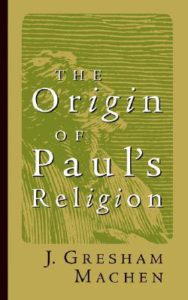 |
 |
Why bother to collect water with leaky buckets from distant wells when one can draw fresh water from the well in one’s backyard? [cf. endnote 7]
One of the most dramatic stories in the Bible is the transformation of Paul after he had a vision of the risen Christ. Paul was bent on destroying the church, but he suddenly turned into a preacher whose influence on the development of Christianity is second only to that of Jesus Christ. F.F. Bruce describes the significance of Paul’s conversion experience on Damascus Road,
No single event, apart from the Christ-even itself, has proved so determinant for the course of Christian history as the conversion and commissioning of Paul. For anyone who accepts Paul’s own explanation of his Damascus Road experience, it would be difficult to disagree with the observation of an eighteenth century writer [G. Lyttelton] that “the conversion and apostleship of St. Paul alone, duly considered was of itself a demonstration sufficient to prove Christianity to be a divine revelation.” /𝟏/
The cradle of Christianity was Judaism and Paul could rank himself as among to the finest elite of Judaism: He was born a “Hebrew of Hebrews,” sat at the feet of the outstanding teacher, Gamaliel, who was the grandson of the great rabbi Hillel. He was an emerging leader of the strict sect of the Pharisees who boasted that he was blameless in his observation of the Law (Phil. 3:6). He shared the same dogmatic assurance with his religious cohorts that the tradition handed down to them by their learned rabbis contained the whole truth of the religion. As such, there is no need for new revelation from God. Continue reading “Historical Origin of Divine Christology Part 3 – The Origin of Paul’s Divine Christology”
